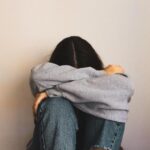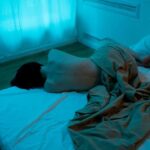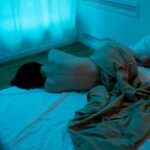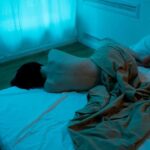For many women, hair loss might be an alarming sign, but it could also be a subtle indication of deeper sleep problems. As we navigate the complexities of life, fatigue, anxiety, and hormonal imbalances often come into play, silently affecting our health and wellbeing. This article explores the connection between hair loss and sleep issues, shedding light on a topic that deserves more attention.
We understand how these challenges can create feelings of frustration and helplessness. Your journey towards understanding both hair loss and sleep issues is essential. in their lives. Join us as we uncover ways to reclaim your health and hair.
Understanding Hair Loss in Women
Hair loss can be a distressing experience for many women, especially as they reach their 30s and beyond. The emotional weight of losing hair often intertwines with various life stresses, making it essential to understand the underlying factors contributing to this issue. While women may associate hair thinning with aging or genetics, it’s crucial to recognize that other variables, particularly sleep patterns, could also play a significant role.
For many women, the societal pressure to maintain silky, voluminous hair can feel overwhelming. The reflection in the mirror might not match the vibrant image in their mind. But before jumping to conclusions about beauty standards, we should explore the medical and emotional layers involved in hair loss.
The Hidden Link Between Hair Loss and Sleep Issues
Research indicates a strong connection between sleep quality and hair health. Poor sleep can lead to hormonal imbalances that trigger hair loss or exacerbate existing conditions. When a woman struggles with sleep, it often leads to increased stress, which can manifest physically in various ways, including thinning hair.
Understanding the relationship between hair loss and sleep quality:
- Sleep deprivation can elevate stress hormones like cortisol, which may contribute to hair loss.
- Quality sleep helps regulate hormones such as estrogen and progesterone, which are vital for hair growth.
- During deep sleep, the body repairs itself, including hair follicles, making sleep crucial for maintaining healthy hair.
Addressing sleep issues may create a positive ripple effect, not only on hair health but also on emotional well-being.
Common Sleep Problems Affecting Women
As women age, they often experience unique sleep challenges that can exacerbate hair loss issues. Some common sleep problems include:
- Insomnia: Difficulty falling or staying asleep can significantly reduce overall sleep quality.
- Sleep Apnea: This condition causes interruptions in breathing during sleep, often leading to fatigue and hormonal imbalances.
- Restless Leg Syndrome: This can make falling asleep difficult and may cause excessive movement throughout the night.
- Menopausal Symptoms: Hot flashes and night sweats can disrupt sleep patterns.
These sleep issues, although sometimes dismissed, hold the potential to impact physical appearance and emotional health intensely.
How Hormonal Imbalances Impact Sleep Quality
Many women experience hormonal fluctuations throughout various life stages, such as menstrual cycles, pregnancy, and menopause. These changes can directly impact sleep quality and contribute to hair loss. For instance:
- Estrogen Levels: Estrogen helps regulate sleep-wake cycles. Low levels can lead to sleep disturbances and increased hair shedding.
- Thyroid Issues: An underactive thyroid can cause fatigue and hair thinning, while hyperthyroidism can lead to insomnia.
It’s essential to consider that addressing hormonal imbalances may lead to substantial improvements in both sleep quality and hair health.
Signs Your Sleep Problems Are Causing Hair Loss
Recognizing the signs that sleep problems are contributing to hair loss is critical. Here are some indicators:
- Thinning hair or noticeable patches of hair loss.
- Feeling more tired than usual during the day, even after a full night’s sleep.
- Experiencing increased stress or anxiety related to daily life.
- Struggling to focus or feeling foggy mentally.
Being aware of these signs can empower women to take proactive steps in improving both their sleep routines and hair health.
The Importance of Quality Sleep for Hair Health
Good quality sleep is not just a luxury but a necessity for maintaining overall health, including hair health. During sleep, our bodies engage in various restorative processes that are vital for hair growth:
- Cell Repair: Sleep is a time for the body to repair and rejuvenate cells, including hair follicles.
- Protein Synthesis: Hair is primarily made of a protein called keratin, which the body can better produce during quality sleep.
Prioritizing restful sleep may lead to healthier hair growth, enhancing self-confidence and emotional well-being.
Practical Tips for Improving Sleep Quality
Improving sleep quality often requires adopting new habits. Here are some practical tips:
- Create a Relaxing Bedtime Routine: Engage in calming activities such as reading or meditating to signal your body that it’s time to wind down.
- Establish a Sleep Schedule: Going to bed and waking up at the same time every day can train your body to fall asleep more easily.
- Limit Screen Time: Reducing exposure to blue light from devices at least an hour before bed can enhance the quality of your sleep.
- Optimize Your Sleep Environment: Ensure your bedroom is dark, cool, and quiet to enhance relaxation.
These small adjustments can significantly influence sleep quality, creating a ripple effect on overall health, including hair vitality.
Natural Remedies for Hair Loss and Sleep
Considering natural remedies can be a gentle way to address hair loss and promote better sleep. Some options to explore include:
- Herbal Teas: Chamomile and valerian root can promote relaxation and help induce sleep.
- Essential Oils: Lavender oil can create a calming atmosphere, enhancing sleep environment.
- Nutritional Supplements: Biotin and magnesium may support hair health and improve sleep quality.
Exploring these natural approaches can empower women to take control of their health, addressing both sleep quality and hair vitality.
The Role of Stress and Anxiety in Hair Loss
Stress and anxiety are significant contributors to hair loss and poor sleep quality. The body reacts to stress with the fight-or-flight response, which can lead to hair shedding. Recognizing and managing stress can be crucial for women experiencing hair loss:
- Mindfulness Practices: Engage in practices such as yoga or meditation to help alleviate stress.
- Physical Activity: Regular exercise can improve mood and promote better sleep.
By addressing stress holistically, women can find greater peace in their lives, enhancing their overall well-being including hair health.
Finding Support and Resources for Women
Connecting with others who understand the struggles of hair loss and poor sleep can be immensely beneficial. Consider seeking support through:
- Online Communities: Many forums and groups focus on women’s health and wellness, providing insights and shared experiences.
- Professional Help: Don’t hesitate to consult healthcare professionals regarding sleep issues or hair loss.
Creating a support network allows women to feel less isolated in their journeys and empowers them to take the steps necessary for improvement.
If you’re feeling overwhelmed by the interplay of sleep problems and hair loss, remember that there are ways to approach these challenges holistically. As many other women have discovered, it is possible to improve these symptoms through simple, actionable steps. See how many women are overcoming these issues without heavy medications.
Embrace the journey towards better health; you’re not alone, and there is hope for brighter days ahead.







